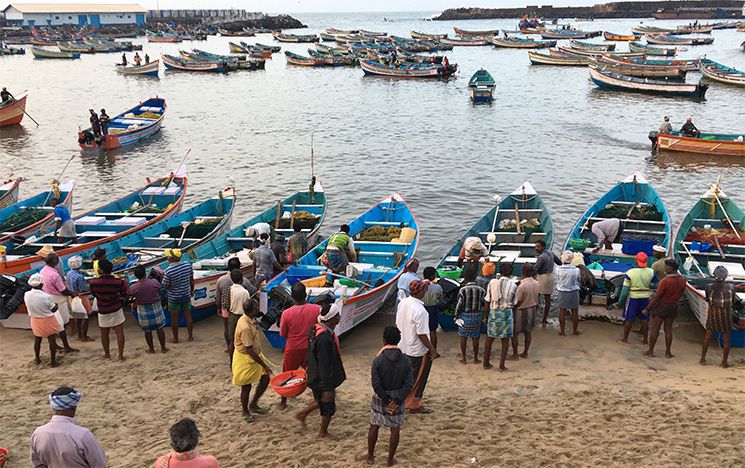SSRP project spotlight 2021/2022
Explore our most recently funded projects from the 2021/2022 academic year below

SSRP small grants fund
Through our latest funding opportunity, we are making small grants available to eight exciting, interdisciplinary sustainability projects to help Sussex researchers re-engage with partners in the Global South on key sustainability topics. As in the past, a range of projects are supported that advance multiple Sustainable Development Goals (SDGs) and related sustainability issues. The approved projects cover various research topics, spanning environmental and human rights issues; climate mitigation and adaptation; food security and the sustainability of the food system; and education for climate action. These interdisciplinary projects build on strong established networks in the country of research and involve engaging with external partners in the Global South, such as Ecuador, Syria and Kenya.
Find out further information about the research projects below:
- Agricultural Voices respond to Syrian farmers. Using digital infrastructure to improve food security and environmental conservation in northwest Syria (Dr Mirela Barbu, University of Sussex Business School)
- Mapping the ‘violence footprint’ of UK-listed companies and their operations in Cambodia (Dr Paul Gilbert, School of Global Studies)
- Collaborative governance of protected areas in Peruvian Amazonia (Dr Evan Killick, School of Global Studies)
- Forecasting with Fishers: Turning research into a means for safe and sustainable livelihood of artisanal fishers in South India (Prof Filippo Osella, School of Global Studies)
- Paraecologists for the ‘Rights of Nature’: addressing the climate and biodiversity emergencies (Dr Mika Peck, School of Life Sciences)
- Vegetation condition forecasting for early warning and preparedness action in Africa (Dr Pedram Rowhani, School of Global Studies)
- Cementing uptake of new drought forecast products and risk management decisions (Prof Martin Todd, School of Global Studies)
- Promoting climate action awareness for Ugandan youth (Dr Joseph Walton, School of Media, Arts and Humanities)
HEIF fund co-sponsored by SSRP: 'From Covid crisis to net zero'
As part of its wide-ranging response to the pandemic, the University of Sussex has run two very successful programmes over the last two years funded through the Higher Education Innovation Fund (HEIF). This Fund supports work with non-academic partners to address their challenges and opportunities presented by the Covid-19 pandemic and to support economic and social recovery. Building on these successes, and expanding on the scope, the University opened a further Internal HEIF programme to work with our non-academic partners to drive economic and social recovery from the Covid-19 pandemic in a way that also tackles climate change across the region and beyond.
The internal call for project proposals for HEIF funding was run in partnership with the Sussex Sustainability Research Programme (SSRP) and was aimed at addressing the critical challenges of Covid-19 recovery (both economic and social) and climate change in an integrated way.
Explore the following sustainability-related projects which were successful in the latest internal HEIF call:
- CarbonMap initiative for sustainable land management (Lokendra Karki, Science Policy Research Unit)
- Supporting social, environmental and economic sustainability in the Costa Rican coffee industry (Dr Evan Killick, School of Global Studies)
- Creating with uncertainty: Covid recovery to educate for sustainable futures (Dr Perpetua Kirby, School of Education and Social Work)
- Sustainable livelihoods, carbon storage, and biodiversity conservation through forest vanilla production (Prof Fiona Mathews, School of Life Sciences)
- Ecoforensic: a new ecological knowledge exchange organisation empowering communities to protect nature (Dr Mika Peck, School of Life Sciences)
- Development of API and visualisation tools to discover post-Covid changes in energy consumption in UK households (Dr Justyna Robinson, School of Media, Arts and Humanities)
- Critical National Infrastructure resilience against pandemics and climate change (Dr Spyros Skarvelis-Kazakos, School of Engineering and Informatics)
- Improving food security and protecting rainforest biodiversity and carbon stocks in indigenous communities recovering from COVID-19 in Papua New Guinea (Prof Alan Stewart, School of Life Sciences)
- Developing an ecosystem of business networks to support SMEs transition to the circular economy (Dr Shova Thapa Karki, University of Sussex Business School)